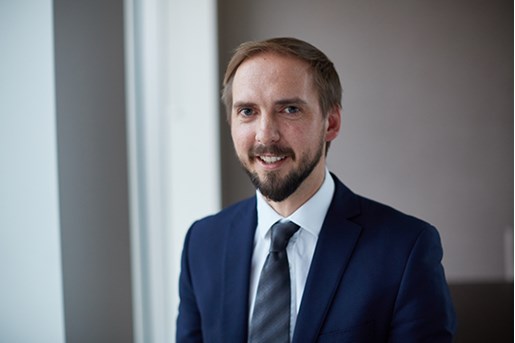Welcome to the June edition of the Addleshaw Goddard Africa Group Newsletter. We hope you enjoy reading a selection of business news and articles from around the continent.
Visit our dedicated Africa site for more information about doing business in Africa and how Addleshaw Goddard can support you.
Introduction
In recent months, the blockage of the Suez Canal following the grounding of the "Ever Given" has put the spotlight on shipping in Africa and this critical artery of global trade. It's estimated that 90% of the world's goods are transported over the ocean. Much of that cargo will either go through the Suez Canal or around the Cape of Good Hope.
As the "Ever Given" casualty has demonstrated, a single voyage of a container ship brings together a myriad of commercial and contractual relationships: ship owners, cargo owners, brokers, regulators, port authorities and many others. When things go right, all stakeholders harmonise a melody that stretches back hundreds of years. Less so when things go wrong – the consequences can be catastrophic and the claims complex. Environmental and sustainability considerations add a further layer of concern.
This month's edition of the Africa Business Group Newsletter, considers these dynamics as well as new projects that are coming online in several ports in Africa. If you would like to discuss any shipping concerns our specialist team, covering both contentious and non-contentious matters, is on-hand to support.
- Why Ever Given cargo claims will get ever larger
Additional cargo claims will result from Egypt’s continuing refusal to let Ever Given sail on, and the longer the vessel is held, the more expensive those claims will ultimately get, legal experts believe.
Once the boxship does finally move, some containers are liable to find themselves dumped at subsequent ports of call, with consignees having already collected on cargo cover, they add.
Ever Given (IMO: 9811000) has remained at anchor in the Great Bitter Lake ever since its grounding caused a six-day closure of the Suez Canal in March, as its Japanese owners battle the issue out with the canal authority in the local courts.
To read this article, click here
- Cargo owners will shoulder Ever Given salvage payments
It has been more than two months since salvors unblocked the Suez Canal by refloating 20,000-TEU container ship Ever Given and yet the vessel remains in Egypt awaiting compensation payments and its release.
If discussions do not result in a compromise, it is the receivers of cargo on board Ever Given that will continue to bear the brunt of the vessel’s detention in Egypt.
The Egyptian arrest proceedings have now been adjourned to give the parties a further opportunity to reach a settlement.
To read this article, click here
- Kenya l aunches Lamu port, but its value remains an open question
Kenya’s newest mega infrastructure project, the Lamu port, has received its first ship. Moina Spooner, from The Conversation Africa, asked Jan Bachmann and Benard Musembi – who study the environmental, socio-economic and security dynamics along the Lamu Port South Sudan Ethiopia Transport Corridor – to provide insights into the history of the port, the opportunities it presents and the concerns around it.
To read this article, click here
- Africa’s ports improve as focus turns to hinterlands
At the end of March, a delinquent ship blocking a crucial artery in global trade showed how dependent the world is on functioning transport networks. Some 400 ships were held up when the container ship Ever Given was grounded for six days in the Suez canal. The cost to the world economy has been estimated at around $10bn a day.
If Africa is to develop a coherent internal market, improved logistics will be vital. Alongside wages and the cost of power, logistics determine the competitiveness of Africa’s goods. The success of the African Continental Free Trade Agreement (AfCFTA), which came into effect at the start of this year, is dependent on the efficient and cheap movement of goods, and requires huge investments to ensure functioning infrastructure.
To read this article, click here
- DP World's mega-port to turn Senegal into trade hub
Dubai-based logistics company DP World is investing $1.1bn in a new container port close to Dakar, the Senegalese capital, with the potential to turn the country into the maritime gateway to west Africa.
The new port will be located at Ndayane, about 50km down the coast from the existing highly-congested port of Dakar, and close to Blaise Diagne International Airport (which opened in 2017 and took in $620m of investment by the African Development Bank, the Islamic Development Bank, and Agence Française de Développement). The port’s construction is expected to start next year and be completed by 2026. DP World’s concession enjoys two 25-year terms and starts once operations begin.
To read this article, click here
- Water hyacinth to clean up the port of Cotonou
Green Keeper Africa will remove polluting fluids from the port of Cotonou with its product, GK Sorb. This anti-pollution absorbent is made locally from water hyacinth. This is the substance of the partnership agreement signed on April 1st, 2021 between the Beninese start-up and the concessionaire Benin Terminal, a subsidiary of Bolloré Ports.
To read this article click here





